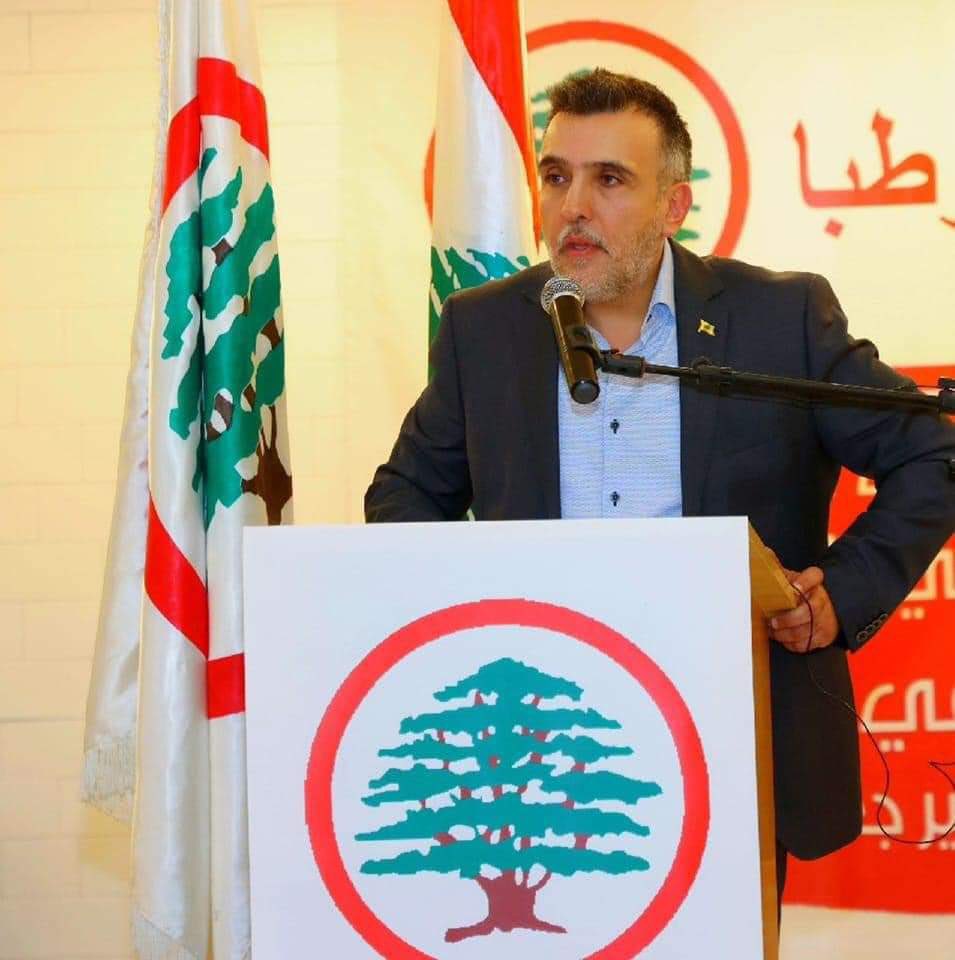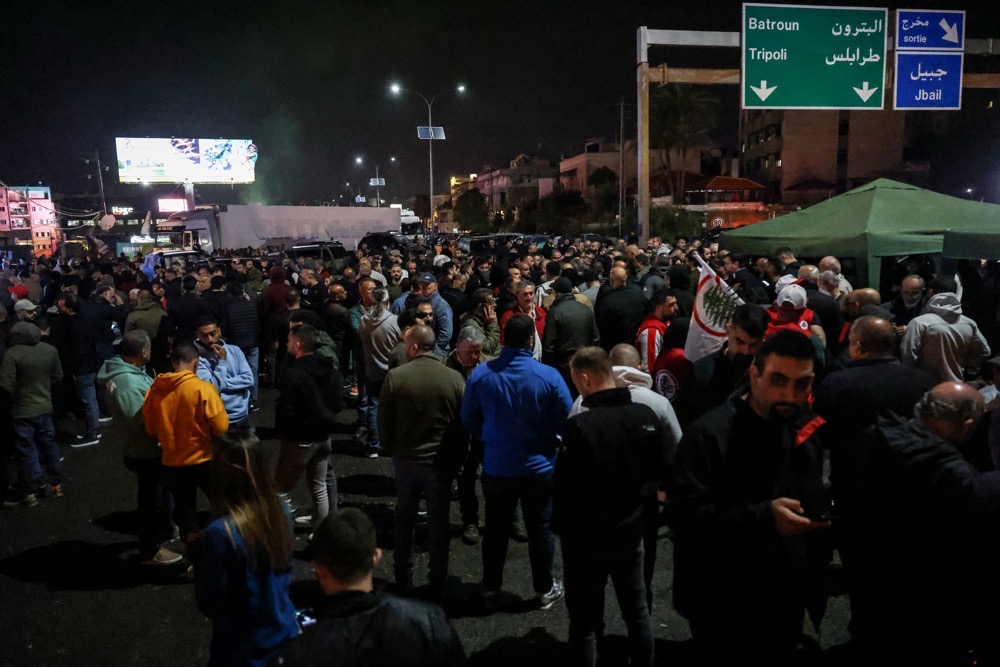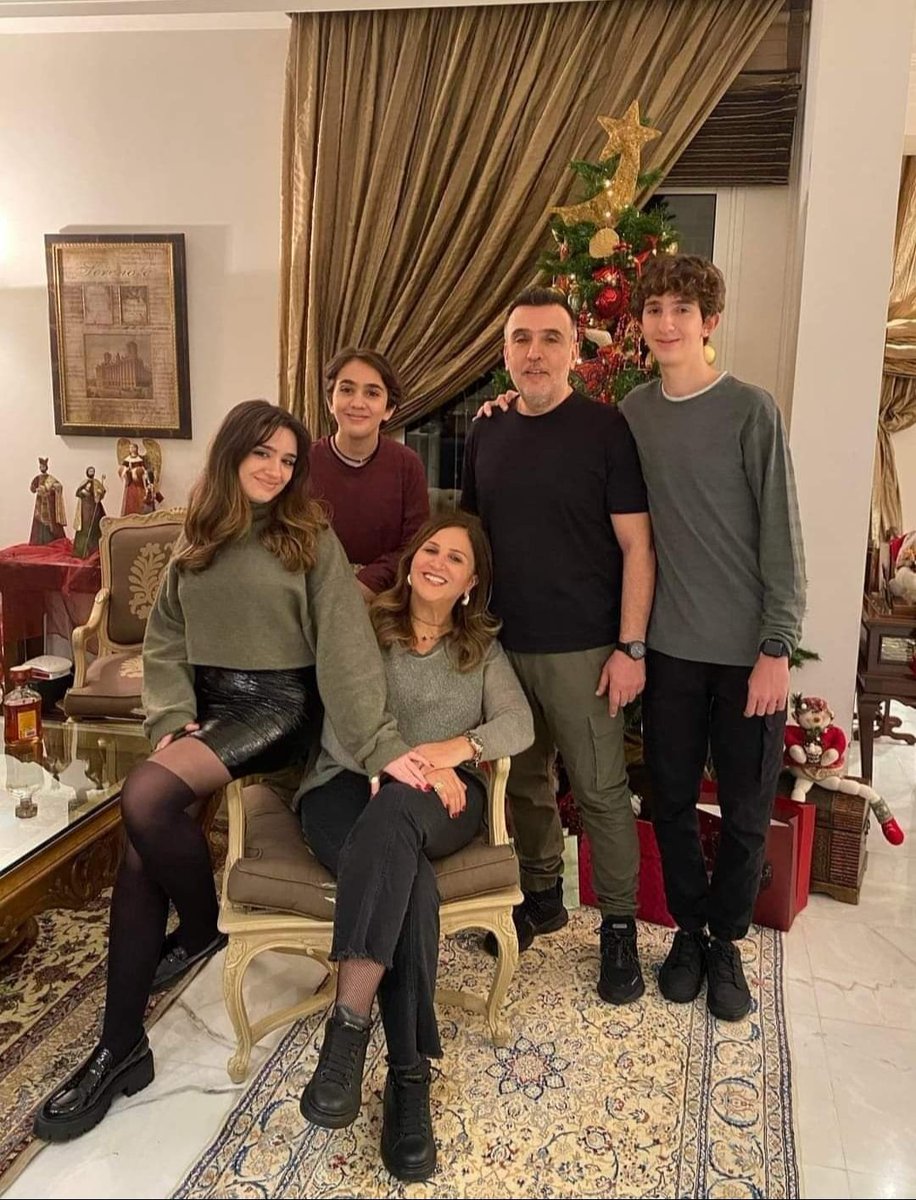BEIRUT: Almost five decades since the Lebanese civil war of 1975-1990 began, reactions to the kidnap and subsequent murder this week of Pascal Suleiman, an official of the Lebanese Forces, show the country’s fragile peace remains on a knife edge.
Suleiman, a political coordinator in the Byblos area, also known as Jbeil, north of Beirut, was killed in what the Lebanese army said was a carjacking by Syrian gang members, who then took his body to Syria.
The Syrian Observatory for Human Rights, a monitor of the country’s civil war, said that Suleiman’s body was dumped in a border area where Hezbollah holds sway, adding that he “was wrapped in a blanket and had been hit on the head and chest with a hard object.”
Even though a formal investigation into the circumstances of Suleiman’s death is still ongoing, the Lebanese Forces — a Christian political party and former militia opposed to the Syrian government and its ally Hezbollah — has already branded it a “political assassination.”
In a statement, the Lebanese Forces said that Hezbollah, Lebanon’s powerful Iran-backed Shiite militia and political movement, “has impeded the state’s role and its effectiveness, paving the way for weapons-bearing gangs.”
The Phalange Party and the Free Patriotic Movement issued statements in solidarity with the Lebanese Forces, currently the biggest party in parliament, blaming “uncontrolled weapons and uncontrolled security” for Suleiman’s death.
“The information leaked from the investigation continues to cause more speculation,” Mona Fayad, a Lebanese academic and a prominent Shiite opponent of Hezbollah, told Arab News.
“Suleiman’s murder was initially thought to be car theft, although it took place on a remote road where cars rarely pass.

Pascal Suleiman was killed in what the Lebanese army said was a carjacking by Syrian gang members, who then took his body to Syria. (Supplied)
“Suleiman’s political affiliations also come into play, and the fact that the killers took him to an area controlled by Hezbollah on the Lebanese-Syrian border. The perpetrators were able to sneak past all official security points without anyone suspecting them.”
Hassan Nasrallah, Hezbollah’s secretary-general, responded to the allegations of his group’s involvement by accusing the Lebanese Forces, the Phalange Party, “and those who orbit them,” of being “owners of chaos looking for a civil war.”
Sectarian tensions are rife in Lebanon. Suleiman was from Byblos, a Christian-majority town surrounded by Shiite-majority settlements, where disputes between the communities have previously spilled over into armed clashes.
In a country already fraught with political divisions, economic woes and the prospect of another potentially devastating war with Israel, many fear the killing could provoke an escalation reminiscent of the civil war.
“The security situation in Lebanon has deteriorated since the beginning of the economic crisis,” Mohanad Hage Ali, deputy director for research at the Malcolm H. Kerr Carnegie Middle East Center, told Arab News.
“It is likely to deteriorate further as a result of the widespread increase in crime and the weakness of the security forces as part of the military turned into part-timers to compensate for their income after declines in salaries.”
Indeed, even if Suleiman’s death was in fact the result of a carjacking, as the Lebanese army suspect, the incident reflects Lebanon’s institutional decline, growing insecurity, and the collapse of the rule of law.
Opinion
This section contains relevant reference points, placed in (Opinion field)
“Crimes have increased as a result of the economic crisis and the burden of Syrian refugees and the transformation of the Lebanese economy into cash money, which encourages the exploitation of people,” Hage Ali said.
Suspicions about the genuine cause of death remain, however. Suleiman’s case has parallels with the death of Elias Al-Hasrouni, another Lebanese Forces coordinator, who was killed in what was dubbed a “planned” accident in a Hezbollah-controlled area.
Although the investigation into Suleiman’s death is still ongoing, his killing has provoked widespread condemnation across the political and religious spectrum, with parties and faith leaders branding it “unacceptable, neither legally, nor morally, nor humanely.”
Najib Mikati, Lebanon’s caretaker prime minister, called on all factions to “exercise self-control, exercise wisdom, and not be drawn into rumors and emotions” while the investigation is underway.
Another example of just how fragile Lebanon’s peace has become of late was the Tayouneh incident of Oct. 14, 2021, when Hezbollah and the Amal Movement came under attack by unidentified gunmen allegedly associated with the Lebanese Forces, sparking clashes.
The violence erupted outside the Justice Palace during a protest organized by Hezbollah and its allies against Tarek Bitar, the lead judge probing the August 2020 Beirut port blast, as they accuse him of being partisan. The potential for similar clashes remains.
“The problem in Lebanon is that there is a lack of political horizon and there is a feeling of loss of hope from the political class, which leads to accepting that this reality will be permanent and raises the level of tensions,” Hage Ali said.
“Since the beginning of the economic collapse, we have seen manifestations of self-security. The matter has become a lived reality, meaning that hybrid security is met with armed militia forces in the regions.

The scapegoating of Syrian refugees for Lebanon’s ills has become commonplace. (AFP)
“Any crime that occurs is followed by a state of shock, which is what happened today as a result of Suleiman’s murder, but I believe that after a year, for example, crime will become a part of daily life.
“Lebanon has become a mixture of the Argentinian situation in terms of economic collapse and the Colombian situation in terms of the extent of crime which will cause more trouble for Hezbollah.”
As Suleiman was allegedly killed by Syrian nationals, some of whom have reportedly been arrested by the Lebanese security services, the incident has raised the prospect of further hostility against Lebanon’s substantial Syrian refugee community.
Just hours after Suleiman’s death was announced, the Lebanese Forces called for restraint after several of its supporters began attacking Syrians and evicting them from their homes in Beirut and other regions.
The UN refugee agency, UNHCR, says that more than 800,000 Syrian refugees are registered with the body in Lebanon, noting registrations have been suspended since 2015 following a government ruling.
In a press conference following Suleiman’s murder, Lebanon’s acting interior minister, Bassam Mawlawi, said that security forces had been instructed “to strictly enforce Lebanese laws on Syrian refugees.
“We will become stricter in granting residency permits and dealing with those (Syrians) residing in Lebanon illegally,” he said, calling for measures “limiting the presence of Syrians” in the country, without saying how.
The scapegoating of Syrian refugees for Lebanon’s ills has become commonplace, with policies designed to hamper their integration into Lebanese society and compel them to return to Syria, even if that means facing persecution at the hands of the Bashar Assad regime.
However, in this context of exclusion and economic crisis, a section of the Syrian refugee community has resorted to criminality. Indeed, according to Mawlawi, some 35 percent of the country’s prison population is made up of Syrians.
“Everyone in Lebanon avoided addressing the Syrian refugee crisis, but was content with reactions to every incident,” Hage Ali said.
“The Syrian asylum issue has turned into a taboo, so has the issue of illegal crossings. Populist talk is of no use. There is a marginalized group within the Syrian presence in Lebanon that will grow with time and will benefit, including organized crime.”
To make matters worse, Lebanon’s economic meltdown, which began in late 2019, and its continuing political deadlock have paralyzed the criminal justice system and institutional structures designed to keep the fragile peace.
Hage Ali believes Lebanon has “accumulated crimes during the last two decades without a minimum level of justice. Its amnesty system, to turn the page on the past, has turned into a system that perpetuates violence and injustice.
“Almost 50 years have passed since the outbreak of the civil war. Time was supposed to have taught the Lebanese that the approach to war should be different from the previous ones, but Lebanon is still within the ongoing cycle of violence.”
Once considered an oasis of calm in a region otherwise fraught with turmoil, Lebanon has again been brought to the brink of conflict. Many fear an incident such as the death of Suleiman could light the touchpaper of a new period of sectarian strife.

Pascal Suleiman with his family. (Supplied)
Melhem Khalaf, an independent member of parliament and former head of the Beirut Bar Association, told Arab News that Lebanese citizens will not stand by and allow their hard won peace and unity to be broken once again.
“We are just days away from the fateful anniversary of April 13 (the start of the Lebanese civil war), a memory that is full of fear and pain, and that is something we have worked so hard for years to avoid, to solidify peace and bring about reassurance and stability,” Khalaf said.
“There is trouble that is once again rearing its head from the Byblos region, which throughout the senseless and ill-fated war maintained its national cohesion with a clear and solid will.
“It is a real warning that requires all of us to take action, to take the initiative and eliminate any strife that might take our society back to bygone and painful days. The dangers surrounding us from all sides are enough. We don’t want it, neither for our youth, nor for our people, nor for our country.”
Khalaf believes what is happening now is “the decomposition of the state and a sign of its continuing weakness.
“What we require today, with absolute speed, is to rally around each other to restore the state of truth and the rule of law. To have a state that guarantees coexistence, as well as presidential elections which will be the gateway to order.”
Although sectarian and intercommunal tensions are high, and public anger at the entrenched political elite continues to simmer, the elephant in the room today is the war in Gaza and the potential for a repeat of Lebanon’s devastating 2006 war with Israel.
Since the Oct. 7 Hamas-led attack, which triggered Israel’s military assault on the Gaza Strip, the Palestinian militant group’s Hezbollah ally has traded fire with Israeli forces along the Lebanese border, raising fears of an expanding regional war.
As a result, Lebanese academic Fayad believes a return to the civil strife of decades past will likely be tempered by Hezbollah’s need to concentrate on the far greater existential threat of war with Israel.
“There are different definitions of strife in Lebanon,” Fayad said. “There is a vertical political division and sectarian polarization, but so far it has not turned into an armed war because the strong party in it is Hezbollah, and it is not in its interest to frighten others.
“Rather it must convince them to stand by its side, especially in its war in southern Lebanon against Israel.”





























